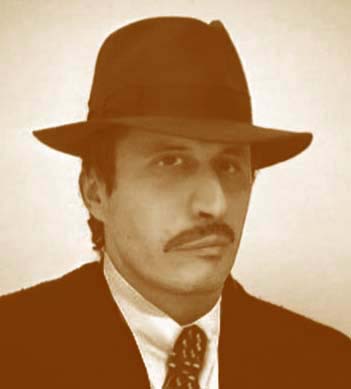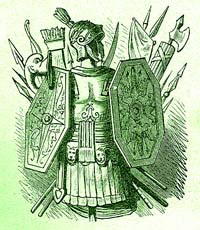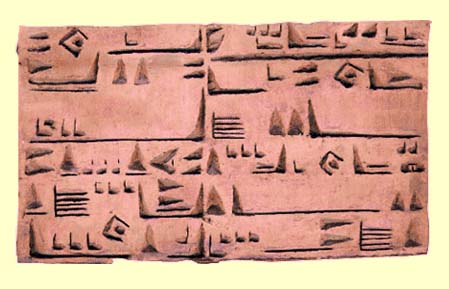The Truth About Alternative Medicine
More and more people are using medicine and practices once considered "alternative," but are they doing the right thing? Maybe, maybe not.
According to a recent study conducted by AARP and the National Center for Complementary and Alternative Medicine, two-thirds of Americans over the age of 50 are using some form of complementary or alternative medicine -- such as dietary supplements, acupuncture, spinal manipulation and yoga -- but only about one-third discuss these practices with their primary doctor.
This trend is transforming practices in hospitals and clinics across the country, including Mayo Clinic. Doctors, in partnership with their patients, are turning to practices once considered "alternative" as they treat the whole person -- mind and spirit, as well as body; and they are learning the importance of asking patients what complementary and alternative practices they are using.
"People are seeking greater control of their health and are turning to once-considered 'alternative' therapies more and more," says Brent Bauer, M.D., director of the Complementary and Integrative Medicine program at Mayo Clinic in Rochester, Minn. "We hope people who choose alternative medicine will educate themselves about the risks and benefits and make sure the treatment they are pursuing isn't actually harmful to their health, and then discuss their questions and practices with their doctor."
To provide consumers with a reliable source for information on integrative and alternative medicine, Mayo Clinic published the "Mayo Clinic Book of Alternative Medicine".
"We put this book together because we realize that with so much information available to people through the Internet and other sources, it's difficult to sort through the advertising claims and hype and find reliable sources for information about natural therapies. Our intent is for this bookto be a good starting point for a conversation that consumers will ultimately have with their doctor about whether the treatment they are considering will work for them," says Dr. Bauer, the book's medical editor-in-chief.
For example, if someone is dealing with depression wants to try St. John's wort, the book will help them understand that while it may be an effective treatment for depression it can also have a major impact on other medications. Because St. John's wort revs up the metabolism of many drugs, levels of formerly effective pills can be cut so low that they are no longer effective. This is a serious problem for people on medications such as blood thinners, seizure medicines and such. "I am aware of cases in which heart transplant patients suffered organ rejection when the St. John's wort reacted negatively with their anti-rejection drugs," says Dr. Bauer.
For those who suffer from frequent headaches or migraines, alternative therapies that are safe and proven to be effective for many patients include acupuncture, massage, the herbs Feverfew and Butterbur, vitamin B12 and magnesium supplements.
What about when you have a cold? You can consult the book to find out if taking Echinacea or vitamin C will really make a difference.
There are also recommendations for using integrative therapies to deal with such conditions as irritable bowel syndrome, memory problems, chronic fatigue syndrome, stress and anxiety, to name a few.
According to a recent study conducted by AARP and the National Center for Complementary and Alternative Medicine, two-thirds of Americans over the age of 50 are using some form of complementary or alternative medicine -- such as dietary supplements, acupuncture, spinal manipulation and yoga -- but only about one-third discuss these practices with their primary doctor.
This trend is transforming practices in hospitals and clinics across the country, including Mayo Clinic. Doctors, in partnership with their patients, are turning to practices once considered "alternative" as they treat the whole person -- mind and spirit, as well as body; and they are learning the importance of asking patients what complementary and alternative practices they are using.
"People are seeking greater control of their health and are turning to once-considered 'alternative' therapies more and more," says Brent Bauer, M.D., director of the Complementary and Integrative Medicine program at Mayo Clinic in Rochester, Minn. "We hope people who choose alternative medicine will educate themselves about the risks and benefits and make sure the treatment they are pursuing isn't actually harmful to their health, and then discuss their questions and practices with their doctor."
To provide consumers with a reliable source for information on integrative and alternative medicine, Mayo Clinic published the "Mayo Clinic Book of Alternative Medicine".
"We put this book together because we realize that with so much information available to people through the Internet and other sources, it's difficult to sort through the advertising claims and hype and find reliable sources for information about natural therapies. Our intent is for this bookto be a good starting point for a conversation that consumers will ultimately have with their doctor about whether the treatment they are considering will work for them," says Dr. Bauer, the book's medical editor-in-chief.
For example, if someone is dealing with depression wants to try St. John's wort, the book will help them understand that while it may be an effective treatment for depression it can also have a major impact on other medications. Because St. John's wort revs up the metabolism of many drugs, levels of formerly effective pills can be cut so low that they are no longer effective. This is a serious problem for people on medications such as blood thinners, seizure medicines and such. "I am aware of cases in which heart transplant patients suffered organ rejection when the St. John's wort reacted negatively with their anti-rejection drugs," says Dr. Bauer.
For those who suffer from frequent headaches or migraines, alternative therapies that are safe and proven to be effective for many patients include acupuncture, massage, the herbs Feverfew and Butterbur, vitamin B12 and magnesium supplements.
What about when you have a cold? You can consult the book to find out if taking Echinacea or vitamin C will really make a difference.
There are also recommendations for using integrative therapies to deal with such conditions as irritable bowel syndrome, memory problems, chronic fatigue syndrome, stress and anxiety, to name a few.
The Mayo Clinic Book of Alternative Medicine
Courtesy of ARAcontent





















No comments:
Post a Comment